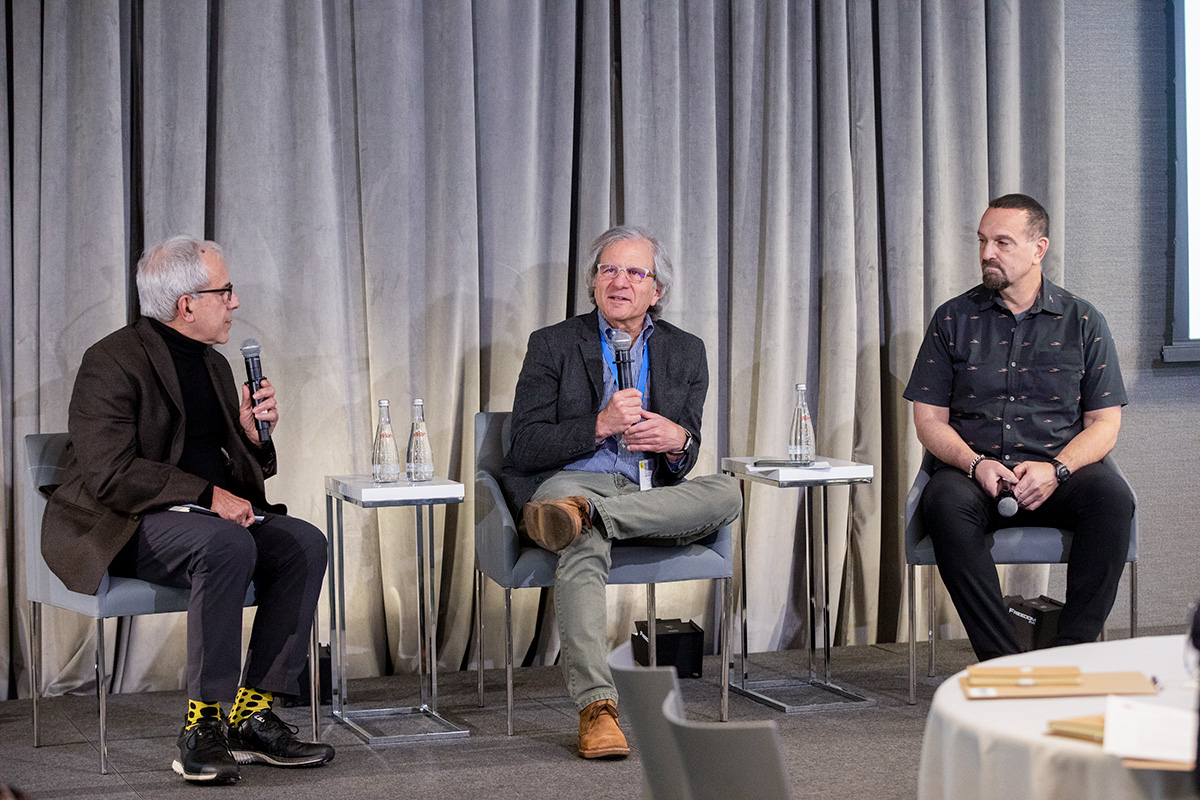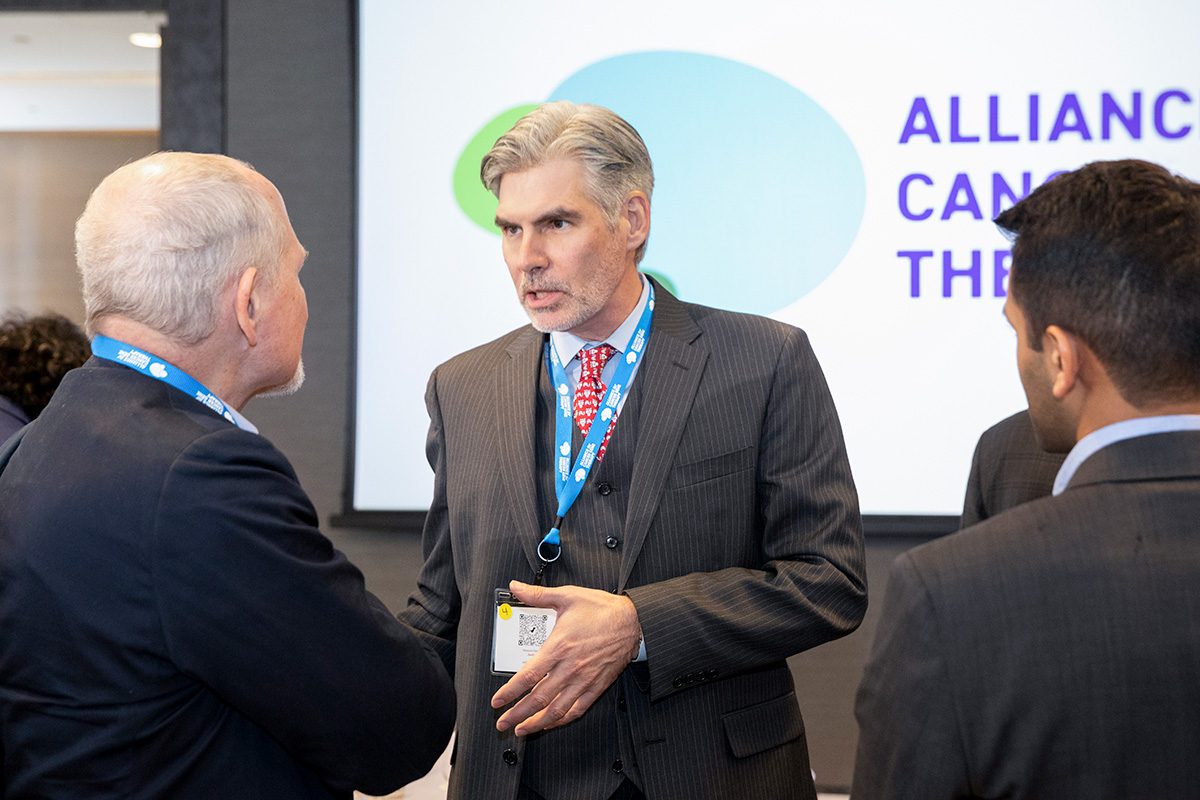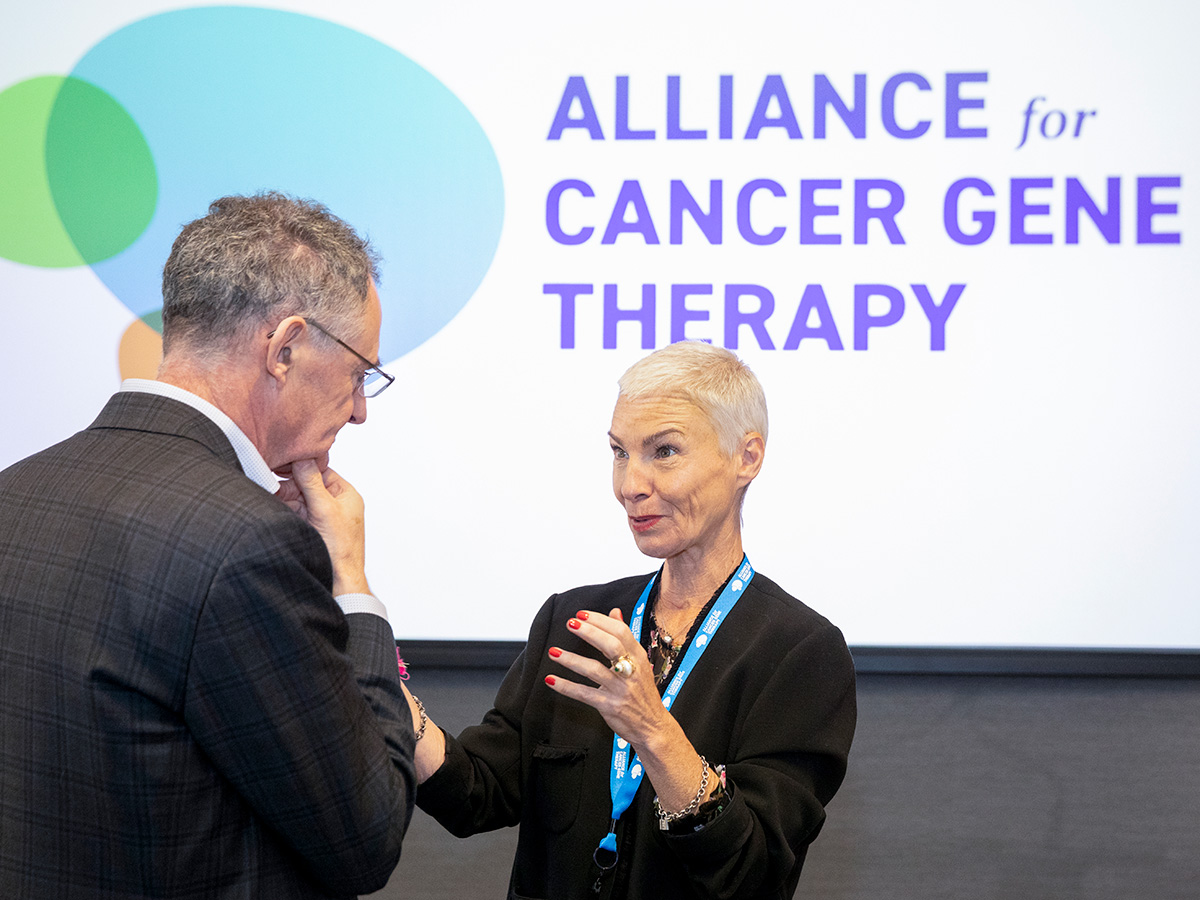
For much of the past three years due to the COVID-19 pandemic, cancer cell and gene therapy experts have been limited to Zoom calls and individual “silos,” as described by ACGT Research Fellow Daniel Powell, PhD, of the University of Pennsylvania.
This is why all of the scientists in attendance for Alliance for Cancer Gene Therapy’s Summit 2023 were appreciative of what the event provided: a day-long scientific gathering to discuss some of the challenges and opportunities in the field of cell and gene therapy.
“The level of ingenuity in this particular group is incredibly high. Some of the ideas brought forward here are going to help push the rock up the hill, so to speak. A single person making that effort on their own is not going to be sufficient. So, getting everyone in that room and having an innovative idea spoken aloud is going to be the big power of this particular meeting.” — Daniel Powell, PhD, of the University of Pennsylvania
Summit 2023 was the first in-person day-long scientific gathering hosted by ACGT, which held an ACGT Virtual Summit in 2021 due to COVID-19 precautions. Summit 2023 was an invitation-only event that brought together top scientists in the field of cancer cell and gene therapy, including ACGT Research Fellows, ACGT Scientific Advisory Council members, biotech leaders, and other thought-leaders.
A curated agenda of speakers allowed the scientists to share ideas among their peers to help advance cell and gene therapy research and development – ultimately, to benefit patients diagnosed with difficult-to-treat cancers, especially those with solid tumors.
“It’s inspirational,” said ACGT Research Fellow and Scientific Advisory Council member Noriyuki Kasahara, MD, PhD, of the University of California San Francisco. “You work in your bubble – especially in the pandemic – and having these meetings in-person and exchanging ideas and hearing what everyone is up to in-person, you can really dig into the details.”
Highlights from panel discussions at ACGT Summit 2023

There was a wide range of topics discussed during Summit 2023. Sessions included:
- How to combine different therapeutic approaches to “create the perfect storm to treat cancer”
- Presentations from Research Fellows on how they’re using ACGT grant funding to develop novel therapies for solid tumors
- Opportunities to advance cell and gene therapies for pediatric cancers
- How to expand the cell and gene therapy universe beyond just CAR T-cell therapy
The opening session of Summit 2023 featured Ira Mellman, PhD, the Vice President of Cancer Immunology at Genentech, and George D. Yancopoulos, MD, PhD, the Scientific Founder, President and Chief Scientific Officer of Regeneron Pharmaceuticals. They had a “Fireside Chat” to discuss how to combine therapies and approaches to find one of the many “magic bullets,” as Dr. Yancopoulos described, to potentially cure cancer.
“We are only beginning to understand how the immune system works,” he said, adding that cell and gene therapies can activate the immune system but often need to be controlled so they don’t harm patients. “It’s not just about hyping up the immune system. It’s also about controlling the response.”

Focus on pediatric cancers during ACGT Summit 2023
In the afternoon, one of the highlights of Summit 2023 was the discussion about cell and gene therapies for pediatric cancers. The three panelists were:
- ACGT Research Fellow and Scientific Advisory Council member E. Antonio Chiocca, MD, PhD, of Brigham and Women’s Hospital
- ACGT Research Fellow and Scientific Advisory Council member Crystal Mackall, MD, of Stanford University
- ACGT Research Fellow Stephen Gottschalk, MD, of St. Jude Children’s Research Hospital
One of the main sentiments expressed was more funding and focus should go toward childhood cancers.
“Until recently, it was always felt that when you had a new therapy, you’d go to adults first and then kids.” — E. Antonio Chiocca, MD, PhD, of Brigham and Women’s Hospital
The biggest progress in cell and gene therapy for pediatric cancers is the direct result of ACGT-funded research. With the financial support of our nonprofit organization, ACGT Research Fellow and Scientific Advisory Council member Carl June, MD, developed the first effective cell and gene therapy for cancer. It was a CAR T-cell therapy to treat pediatric acute lymphoblastic leukemia.
Dr. June’s work led to a clinical trial, which enrolled Emily Whitehead, who is one of the most well-known survivors of children’s cancer. Emily has survived for 11 years after she received CAR T-cell treatment in 2012 as part of Dr. June’s study and is considered cured.
However, not much progress has happened since then.
“Historically, we let therapies for children trickle down from adults,” Dr. Mackall said, later adding, “There are many examples of advances in pediatric cancers trickling up.”



